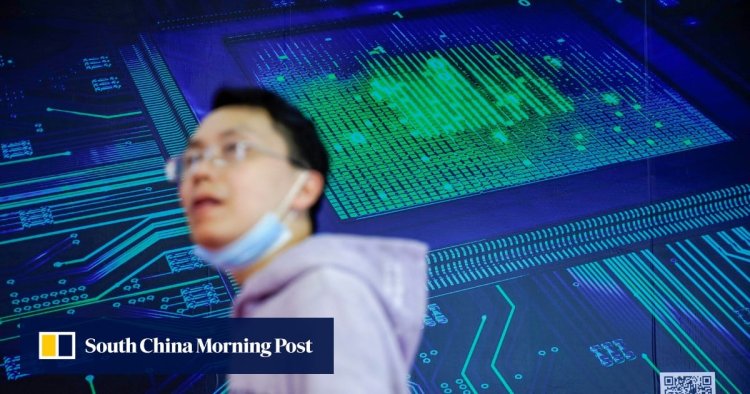Tech war: China’s chip output shows recovery in March amid US export restrictions on advanced tools
2023.04.18 20:00The latest economic data published by China’s statistics bureau points to a recovery in the national semiconductor industry, despite intensifying efforts by Washington to cripple the nation’s ability to produce advanced chips.China produced 29.4 billion units of integrated circuits (ICs) in March, down only 3 per cent from a year ago and narrowing significantly from the 17 per cent year-on-year drop in the first two months of the year, according to new numbers published by the National Bureau of Statistics (NBS) on Tuesday.The March IC output marked the largest monthly production since December 2021, according to previous records, indicating a recovery in China’s chip output.The picture appears even rosier when looking at earlier data, which showed that China produced 28.5 billion units of ICs in March 2022. That would indicate a 3.1 per cent growth in IC output last month, rather than a decline.NBS said in a footnote in its monthly industrial output report that it adju


The latest economic data published by China’s statistics bureau points to a recovery in the national semiconductor industry, despite intensifying efforts by Washington to cripple the nation’s ability to produce advanced chips.
China produced 29.4 billion units of integrated circuits (ICs) in March, down only 3 per cent from a year ago and narrowing significantly from the 17 per cent year-on-year drop in the first two months of the year, according to new numbers published by the National Bureau of Statistics (NBS) on Tuesday.
The March IC output marked the largest monthly production since December 2021, according to previous records, indicating a recovery in China’s chip output.
The picture appears even rosier when looking at earlier data, which showed that China produced 28.5 billion units of ICs in March 2022. That would indicate a 3.1 per cent growth in IC output last month, rather than a decline.
NBS said in a footnote in its monthly industrial output report that it adjusted headline growth data to reflect changes in the companies included in its samples, which could create small inconsistencies.
For its monthly reports, the bureau tracks businesses with an annual turnover of above 20 million yuan (US$2.9 million). “Every year, new enterprises are added to the sample, while some existing ones are removed,” the agency said.
In the first quarter, for example, NBS said China’s IC output shrank 14.8 per cent from a year earlier, but a comparison with past figures showed only a 10.6 per cent fall.
China’s IC output, a rough measure of the country’s semiconductor production, has gained attention as chips have become a key battleground in the tech war with the United States.
The Joe Biden administration last October tightened its export controls, restricting China’s ability to manufacture advanced chips or buy them from abroad. The move followed the passage of the Chips and Science Act in August, aimed at countering China’s microchip industry and bolstering domestic chip manufacturing.
But China has doubled down on its self-sufficiency drive to boost domestic output of microchips and reduce its reliance on overseas products. IC imports fell to 108.2 billion units in the first quarter, down nearly 23 per cent from a year ago, according to Chinese customs data published last week.
A recovery in IC output would be in line with a broader improvement in the world’s second-largest economy.
China’s gross domestic output expanded 4.5 per cent in the first quarter, the NBS said, adding that 26 out of 41 major industries maintained year-on-year growth after the country abandoned its zero-Covid policies late last year.
Asia has been suffering from a prolonged downturn in semiconductor sales amid global inflation and recession pressures, but the market should bottom out by mid-2023, with new trends, such as growth in electric vehicles, likely to drive demand in the sector, the US-backed Asian Development Bank said in a report earlier this month.
What's Your Reaction?

















